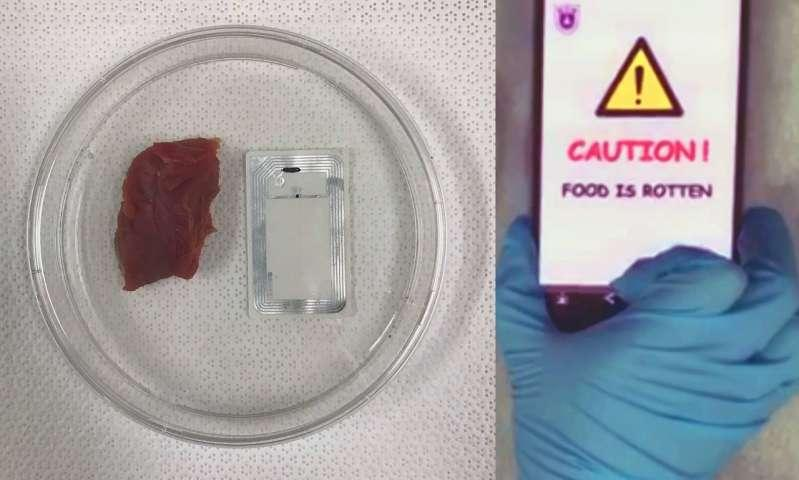Scientists Create Sensor to Identify Spoiled Food
A team of researchers from the United States and China has proposed labeling food products with NFC tags equipped with a sensor that reacts to biogenic amines produced during spoilage. According to Phys.org, these tags can be scanned using a smartphone.
Every year, 48 million Americans suffer from food poisoning caused by spoiled food. Of these, more than 128,000 are hospitalized, and about 3,000 die. The developers note that such a high number of severe poisonings is due to the fact that people can usually only check food freshness visually or by smell, which is not always effective.
To address this issue, the scientists developed a highly accurate sensor that determines the concentration of biogenic amines released during decomposition. They integrated these sensors into NFC tags similar to those already used for product labeling.
Testing the Sensor
The researchers successfully tested their device on “slightly spoiled” pieces of beef, pork, fish, and chicken that did not yet have a strong odor but could already be hazardous to health. The samples were kept for 20 hours at a temperature of 30 degrees Celsius (86°F). The sensor showed that all four samples had spoiled, with the highest concentration of biogenic amines found in the chicken.
The test results are as follows:
- Beef: sensor readings changed by about 150%
- Pork: about 400%
- Fish: about 100%
- Chicken: more than 500%
Future Prospects
The developers say the technology still needs refinement and it is too early to talk about bringing it to market. However, they are confident that such sensors will be in demand among both consumers and grocery store owners.



